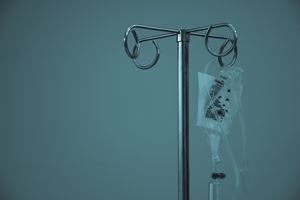
Heart disease is one of the leading causes of death in the country, with recent data from Australian Bureau of Statistics revealing that nearly 20,000 males and females died from cardiovascular-related diseases in 2017.
The following proceedings arose out of the death of a NSW man who suffered a cardiac arrest in 2016.
But was the hospital that treated him negligent, as the family alleged?
Background of the case
On November 13, 2016, an elderly man presented to Liverpool Hospital (the defendant) having suffered a severe heart attack. He was subject to a number of examinations. Results revealed the patient had experienced a heart attack that blocked and stopped blood flow to the heart, thus damaging the vital organ. This was deemed a profoundly life-threatening emergency.
The man remained in hospital for a number of days. On November 18 he was reviewed by the doctor that had initially seen him when he first entered the hospital. Her tests showed nothing unexpected so she formulated a discharge plan for him.
On November 21, whilst at his own home, the man's family (the plaintiffs) found him dead.
What did the plaintiffs claim?
The family members believed the doctors who treated their relative were negligent in failing to provide medical treatment with care and skill. They alleged that the duty of care owed to the patient and themselves was breached, and if further tests had been conducted, his death could have been prevented. All plaintiffs sought damages for mental or nervous shock.
How did the defendants respond?
The hospital didn't dispute that it owed a duty of care towards the victim. It was argued however that it did not owe a duty of care to the patient's family members to prevent psychiatric illness. Doctors claimed they acted in a way that was widely accepted by any other reasonable professional in their position, and at the time of discharge, the man was stable and results showed no signs of concern.
What did the court decide?
Along with medical evidence, the court had to review a list of suggestions submitted by the plaintiffs. Here, the family members included a number of precautions they felt the hospital should have made to safeguard against the risk of death.
However, after consideration, the court found that such precautions were not suitable for the victim's particular circumstances and wouldn't have reduced the risk of death. It felt the plaintiffs had not established that the hospital breached its duty of care to the victim.
Cases like the above prove just how difficult it can be to prove a breach of duty of care. If you're dealing with a medical negligence claim of your own, always enlist the help of expert lawyers to increase your chance of success.

